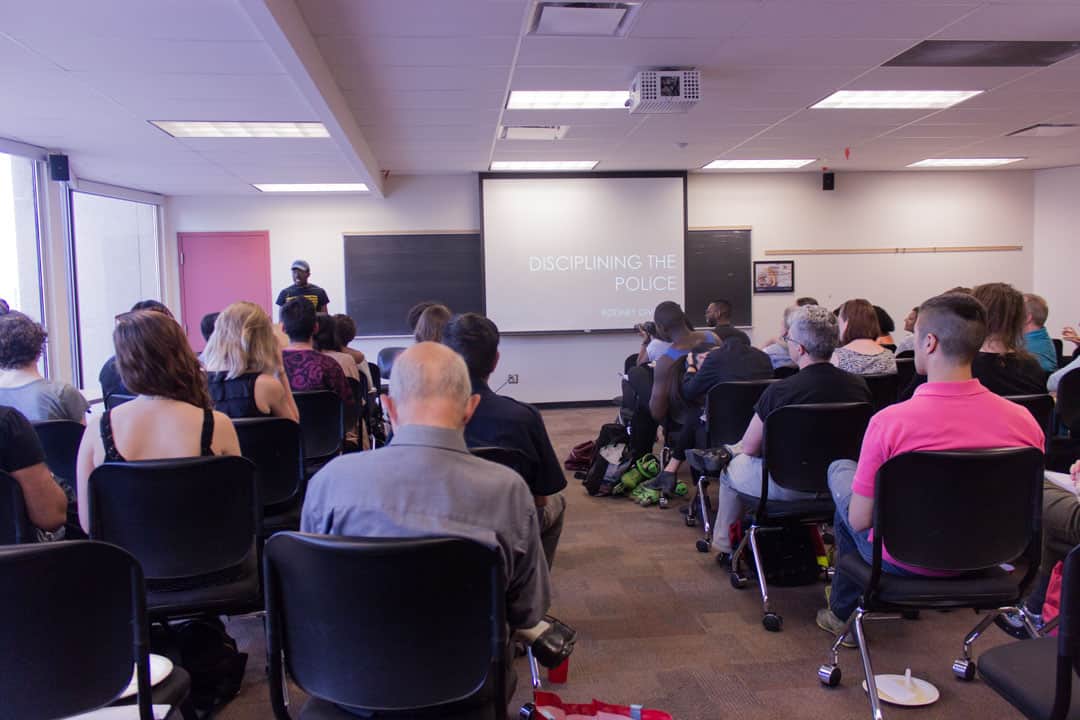On June 21, the University of Toronto Students’ Union (UTSU) invited Black Lives Matter Toronto (BLMTO) co-founder Rodney Diverlus to UTSU-hosted event “Unpacking Police and Pride.”
The event, organized by UTSU Vice-President Equity Chimwemwe Alao, was intended to “unpack” the issue of Toronto Police in the Pride Parade, clarify misinformation, and have an educational discussion on the ban and Blackness in the queer community.
The event occurred one year after BLMTO protested the official presence of the Toronto Police in the Pride Parade.
“Over the past year, conversations on this topic have been filled with toxicity, mis-information, and incredibly anti-black sentiments from both outside and inside the queer community,” Alao wrote in an email to The Varsity.
The topic is one that Alao is personally affected by, along with queer and trans Black people across the city. He said it was important that he used his power and resources to have an informed and controlled conversation that centred Black queer voices.
“When an issue of this caliber is happening in our backyards, it’s necessary to address it in our programming,” Alao said. “Otherwise Pride month at UofT would be simply performative and ignore the roots of Pride, which is inherently political in nature.”
Diverlus, a graduate of Ryerson’s School of Performance, has created projects such as Global Issues Awareness Week and Queering Black History Month.
According to Diverlus, being labelled as divisive or non-inclusive is necessary in order to address the “hypocrisy” of police participating in Pride. He said that Pride Toronto began in response to police inflicting violence upon queer communities, adding that the police “continue to terrorize” community members, pointing to Project Marie, a police operation that saw 72 people charged with engaging in sexual activity in an Etobicoke park in 2016. The operation drew accusations of targeting gay men.
Diverlus described in depth what he called the five-step “blueprint for anti-Blackness.” He said these steps — which include shifting the roles of predators and victims, taking advantage of people’s unfounded existing fears, and spreading lies — allow anti-Blackness to manifest and thrive.
Additionally, Diverlus stated that these steps can be seen in any discussion used to derail discussions of anti-Black racism.
He used the UTSU’s ongoing lawsuit against fellow BLMTO co-founder Sandy Hudson as an example, calling it “nothing more than anti-Blackness masking itself.” Alao has previously stated his support for the lawsuit against Hudson.
When asked what he hoped to come from this discussion, Diverlus said that he wanted Black Lives Matter to be seen as a movement of people, not a monolith. “Just having these dialogues is moving forward,” he said.
Toronto Police did not respond to The Varsity‘s request for comment.


